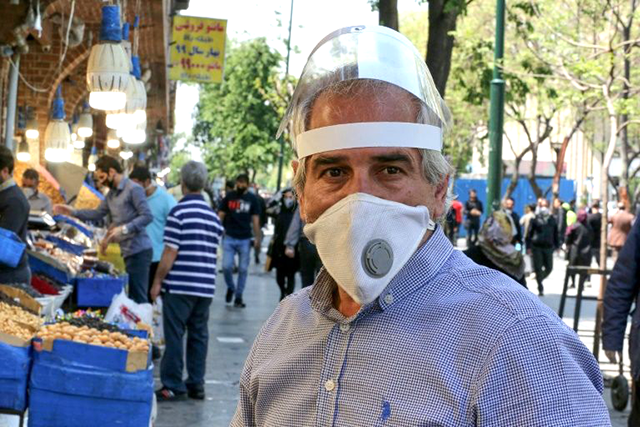- International News
- Tue-2020-04-21 | 03:59 pm

After nearly a week of declining fatalities, there has been a slight uptick in the past few days for the Islamic republic, one of the world's hardest hit.
The sanctions-hit country had shut down all non-essential economic activity in mid-March, weeks after its coronavirus outbreak first came to light.
But top officials argued that Iran's battered economy could not remain shuttered, and President Hassan Rouhani has allowed low-risk businesses to reopen since April 11.
Shops in passages and bazaars were the latest businesses that were permitted to resume trading as part of Iran's gradual reopening of its economy.
Nearly all retailers were open at north Tehran's Tajrish Bazaar, said an AFP correspondent who visited the sprawling complex on Monday.
But Health Ministry spokesman Kianoush Jahanpour appealed for people to remain vigilant as he announced the latest tolls from the deadly virus.
"With some businesses reopening and movement increasing, observing health protocols and social distancing become more and more necessary," he said.
"It does not mean we should be less careful, but the exact opposite," he told a televised news conference.
Iran reported its first coronavirus cases on February 19 -- two deaths in the Shiite holy city of Qom.
Jahanpour said the latest COVID-19 fatalities brought the country's official number of dead to 5,209.
An additional 1,294 infections took the country's total number of COVID-19 cases to 83,505.
Of those admitted to hospital, 59,273 had recovered and were discharged, while 3,389 remained in critical condition.
There has been scepticism about Iran's declared coronavirus casualty figures from officials and experts both in the country and abroad.
Rouhani's government allowed "low-risk" shops in the capital to reopen on Saturday and other provinces last week.
Businesses such as restaurants, gyms and wedding halls are still closed due to the high risk of spreading the virus.
Iran has been under crippling US sanctions since President Donald Trump withdrew the United States from a landmark nuclear deal and reimposed them in 2018.
With sanctions targeting key oil and banking sectors, Tehran has struggled to keep its economy running while handing out cash to the poor.
"The government must fight the direct and indirect impacts of coronavirus like poverty, unemployment, and recession, with the fight becoming harder and more complicated due to sanctions," government spokesman Ali Rabiei told a news conference on Monday.













